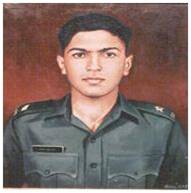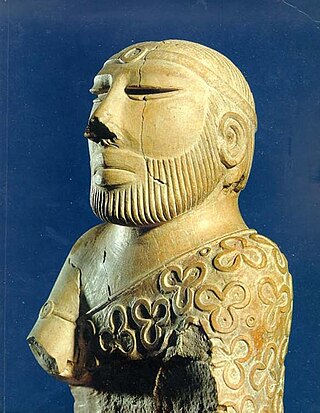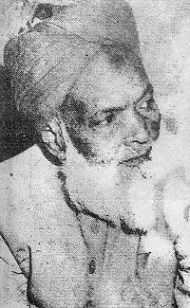Related Research Articles

Iskandar Ali Mirza was a Pakistani politician, statesman and military general who served as the Dominion of Pakistan's fourth governor-general of Pakistan from 1955 to 1956, and then as the Islamic Republic of Pakistan's first president from 1956 to 1958.
Ghulam Ishaq Khan, commonly known by his initials GIK, was a Pakistani bureaucrat, politician and statesman who served as the seventh president of Pakistan from 1988 to 1993. He previously served as Chairman of the Senate from 1985 to 1988 under president Muhammad Zia-ul-Haq, and was sworn in shortly after Zia's death.

Sir Malik Ghulam Muhammad was a Pakistani politician and economist who served as the third governor-general of Pakistan from 1951 to 1955.

Second Lieutenant Arun Khetarpal PVC was an Indian military officer and a posthumous recipient of India's highest military decoration, the Param Vir Chakra, which he was awarded for his valour in face of the enemy. He was killed in action in the Battle of Basantar at Shakargarh during the Indo-Pakistan War of 1971 where his actions earned him his honour.

Air Chief Marshal Pratap Chandra Lal, DFC was the Chief of Air Staff (CAS) of the Indian Air Force (IAF) during the Indo-Pakistani War of 1971. He served in the IAF from 1939 until his retirement in 1973. He was the CAS at the time of Operation Chengiz Khan, the preemptive strikes that were carried out by the Pakistan Air Force (PAF) that marked the formal initiation of hostilities of the war.

Ghulam Mohammad Baksh Butt, commonly known by the title Rustam-e-Hind and by the ring name The Great Gama, was a pehlwani wrestler and strongman in British India and later, Pakistan. In the early 20th century, he was an undefeated wrestling champion of British India.
Major General Akhtar Hussain MalikHJ SPk was a Pakistani senior military officer, and a widely decorated war hero of the Pakistan Army due to his leadership and command during the Indo-Pakistani War of 1965.
PAF College Sargodha is a Pakistan Air Force operated boarding school located in Sargodha, Punjab, Pakistan. It was established in 1953. Founded as a feeding school for Pakistan Air Force Academy, it is now a public school since 1990 funded by the Pakistan Air Force.
Muhammed Abul ManzurBU was a Bangladeshi military officer who commanded the Bangladesh Forces operations in Sector 8 during the Bangladesh Liberation War against Pakistan in 1971. He was allegedly involved in the assassination of the then-President of Bangladesh, Ziaur Rahman. The erstwhile Chief of Army Staff and alleged mastermind of Rahman's assassination, Hussein Muhammad Ershad, had put a standing shoot-to-kill order on Manzur's life—he was killed shortly after being captured at the border. About a year later, Ershad initiated a bloodless coup d'état and took over the Central Government, holding power until 1990.
Ghulam Muhammad Malik is former commander of the 10 Corps, Rawalpindi of the Pakistan Army. 10 Corps was responsible for defending the entire Line of Control between Pakistan administered Kashmir and the Indian-administered Kashmir. He retired from the army in 1995, and has since headed a charity to build hospitals and medical facilities for the poor in various parts of Pakistan.His Son Lt Gen Muhammad Asim Malik HI(M),Sword Of Honour 80 PMA LC is also serving in pak army.He Is Adjutant General.
Air Chief Marshal Farooq Feroze KhanNI(M) HI(M) SI(M) SBt LoM, best known as Feroze Khan, was a Pakistani military officer who served as the 6th four-star air officer in the Pakistan Air Force and also served as the 8th Chairman Joint Chiefs of Staff Committee, appointed in 1994 and retiring in 1997.
Riaz Basra was a Pakistani militant leader and founder of the militant organization Lashkar-e-Jhangvi, which he founded alongside Malik Ishaq and Akram Lahori, in 1996.
Air Chief Marshal Hakimullah Khan DurraniNI(M) HI(M) SJ SI(M) SBt TBt ; best known as Hakimullah, was a four-star air officer who tenured as the 5th Chief of Air Staff of Pakistan Air Force, appointed in this post from 9 March 1988 until retiring on 8 March 1991.

Military coups in Pakistan began in 1958 when military officer Muhammad Ayub Khan overthrew and exiled president Iskandar Ali Mirza. Since its creation in 1947, Pakistan has spent several decades under military rule. After their respective terms in office, each of the past five prime ministers of Pakistan has faced convictions or imprisonment. This trend highlights a significant aspect of Pakistan's political landscape: the prevailing rule that the Pakistani military exercises influence wherever it deems necessary, often persisting despite potential repercussions. Throughout Pakistani history, the military has played a prominent role in governance, with periods where it has directly ruled the country.

Muḥammad Shafī‘ ibn Muḥammad Yāsīn ‘Us̱mānī Deobandī, often referred to as Mufti Muhammad Shafi, was a Pakistani Sunni Islamic scholar of the Deobandi school of Islamic thought.

Saiful Azam was a Bangladeshi fighter pilot, ace, and politician who first served as a fighter pilot for the Pakistan Air Force (PAF) (1960–1971) and later the Bangladesh Air Force (BAF) (1971–1979). According to Pakistani sources, during his career as PAF pilot, he shot down one Indian Air Force (IAF) and four Israel Air Force (IAF) aircraft. For his actions, he received various gallantry awards from Pakistan, Jordan and Iraq. He also took part in 12 ground-attack missions against the Indian forces. After the liberation of Bangladesh, he joined the newly formed Bangladesh Air Force.

Nawab Muhammad Hayat Khan Khattar was a Punjabi Muslim who served the Government of British India and rose to considerable distinction.
Air Commodore Imtiaz BhattiSJ SI(M) SBt in Gujrat, British India, is a cyclist and a former Air Force pilot of Pakistan. He was the Pakistan cycling champion during his student days at Punjab Agriculture College, Lyallpur in late 1940s and early 1950s. He set national cycling records and represented Pakistan in the individual and team road race events at the 1952 Summer Olympics where he was placed 1st among the Asian cyclists and 25th in the world in the 1000 m time trial. Bhatti a veteran of the Indo-Pakistani War of 1965 flew 34 combat missions, the maximum from Pakistan during the war and is credited with confirmed downing of two Indian planes and damaging a third, in addition to participating in raids that destroyed the Amritsar radar and various other air defence and ground support missions.